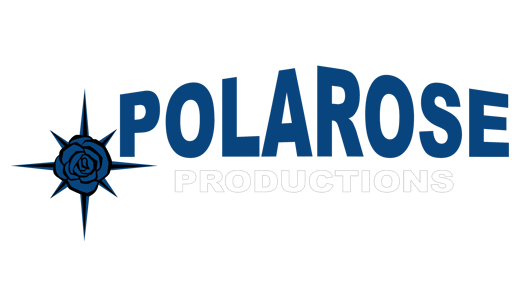Understanding Different Stages in Film Production and What Goes on in Each Step
This blog post explores the stages of film production, from pre-production to post-production. Learn what happens in each phase and what it takes to bring a film from concept to screen.
1/4/20253 min read


Film production is an extensive, multifaceted process that involves several stages, each with its own set of tasks and objectives. Whether you're an aspiring filmmaker or a seasoned professional, understanding the different phases of production is crucial for bringing a story to life. In this blog post, we’ll break down the various stages of film production and what happens in each phase.
1. Pre-Production: Laying the Groundwork
Pre-production is the planning phase, and its purpose is to prepare everything needed to make the actual film. This is arguably the most important phase, as a lot of the film's success depends on the amount of preparation put in before the cameras start rolling.
Key Activities in Pre-Production:
Scriptwriting: This is where the story is written, edited, and finalised. The script is the foundation of any film, and it’s developed in collaboration with writers, directors, and producers.
Budgeting: Producers determine the budget, accounting for all aspects of production, including locations, actors, crew, equipment, and post-production.
Casting: Directors and casting agents select the actors who will bring the characters to life.
Storyboarding: The director and cinematographer map out the visualisation of the story through detailed sketches or digital tools, indicating camera angles, framing, and movements.
Scheduling: A shooting schedule is created, determining when and where each scene will be filmed, taking into account actor availability, locations, and other logistical factors.
Location Scouting: Locations that best suit the story are identified, and permits are secured.
Hiring Crew: From the director of photography to grips, gaffers, production assistants, and sound engineers, every key crew member is selected in this stage.
Why is Pre-Production Important?
Pre-production sets the stage for the entire film. A well-planned pre-production phase ensures smooth execution in the next stages, saving time and resources. A thorough plan also allows you to manage risks, keeping potential issues in check before they arise on set.
2. Production: Filming the Movie
Once the groundwork is in place, it’s time to shoot the film. Production is the phase where everything comes together on set.
Key Activities in Production:
Filming: This is where the actual footage is captured. Depending on the complexity, scenes may be filmed in multiple takes to get the perfect shot.
Directing: The director leads the actors and crew, overseeing how the story is brought to life. The director makes decisions about blocking, performances, and camera work.
Cinematography: The director of photography (DoP) is responsible for visualising the director’s vision, handling camera work, lighting, and shot composition.
Sound: While filming, sound technicians capture live audio, including dialogue and ambient sounds. It's important to have clean sound on set to avoid costly re-recording during post-production.
Set Design and Costume: The production designer, set decorators, and costume designers work to ensure the look of the film is aligned with the story's setting and characters.
Why is Production Crucial?
Production is where everything you've planned in pre-production is physically realised. It’s where all the elements — from acting to sound to camera work — come together to capture the vision of the director.
3. Post-Production: Putting it All Together
Post-production is the final phase of filmmaking, where raw footage is transformed into a polished, coherent film. This is where the story truly comes to life, with editing, sound design, visual effects, and more.
Key Activities in Post-Production:
Editing: The editor assembles the footage into a cohesive narrative, trimming excess scenes, adjusting pacing, and fine-tuning the visual flow. This step includes selecting the best takes, synchronising audio, and adding transitions.
Sound Design: Sound designers add the final sound elements — including music, sound effects, voiceovers, and ADR (Automated Dialogue Replacement). Sound design adds atmosphere and depth to the film.
Visual Effects (VFX): If the film requires special effects, VFX artists will use digital tools to create and incorporate these elements into the film. This might include CGI, animation, or compositing.
Colour Grading: The colourist adjusts the colour scheme of the film to enhance its mood, ensure consistency, and create visual effects.
Final Mix and Mastering: The final audio mix is completed, combining all elements into the final sound track. The mastering process ensures the film is ready for distribution, with proper formats, codecs, and resolution.
Why is Post-Production So Important?
Post-production is the phase where the magic happens. Even if you have fantastic footage, the way it is edited and refined can completely alter the outcome of the film. This stage is crucial for making sure the film delivers the intended emotional impact and flows cohesively.
Conclusion: The Importance of Each Stage
Each stage of film production is crucial, from pre-production to post-production. By taking the time to plan meticulously in the early phases and paying close attention to detail during production and post-production, filmmakers can ensure their project is a success. Remember, no film is created in a vacuum; it takes a coordinated effort between many people, each with a distinct role, to bring a film from idea to screen.
Understanding these stages is a key part of filmmaking. Whether you're a new filmmaker or looking to refine your craft, knowing how each phase works will help you manage projects more effectively and ultimately make better films.
Polarose Productions is a full-service film and video production company based in South London, bringing visions to life for individuals and businesses with creativity, expertise, and end-to-end support.
Email: contact@polarose.uk
Tel: 02080505788
© Polarose Productions Ltd. 2025. All rights reserved.


